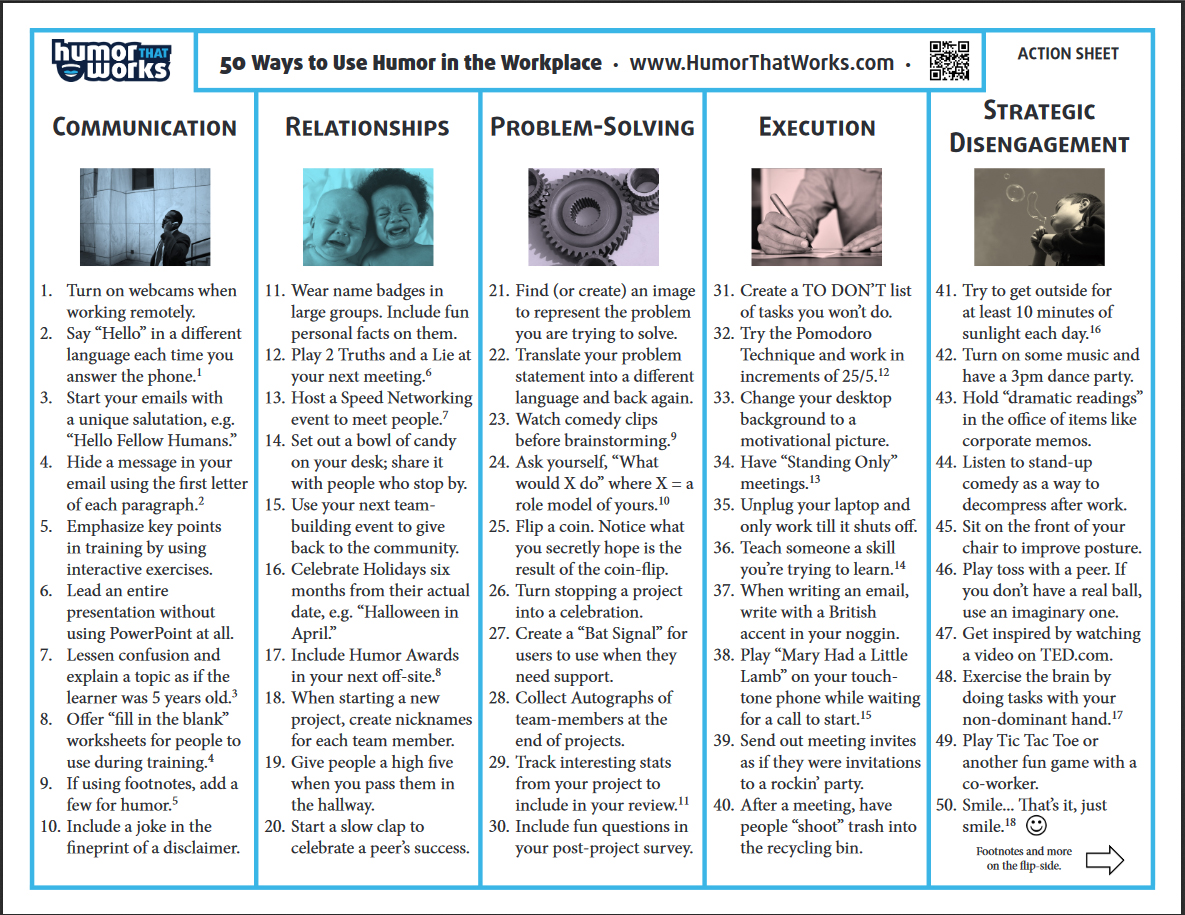Training that Works Checklist
“Learning is not compulsory… neither is survival.” ― W. Edwards Deming
We are in a knowledge economy. Training and building a learning culture is compulsory for survival.
Use this checklist to make sure you consider all the training variables. Please add to the checklist anything overlooked.
Remember, your training goals should be Specific Measurable Achievable Realistic and Timed.
Identify Company Needs/Goals /Strategy
- Adapt to change
- Build managerial and leadership skills
- Budgetary realities
- Compliance and Safety
- Conflict management
- Cross-training
- Delegation
- Effective meetings
- Ergonomics
- Fill specific skills gaps
- Financial education/open book management/budgeting
- Improve company culture
- Improve overall employee engagement and retention
- Improve sales, customer service, productivity
- Improve use of health care, 401K and other benefits
- Innovation/creativity
- Language skills
- Motivation
- Negotiation skills
- Policies and procedures
- Quality improvement
- Remote workers
- Solve a specific problem
- Support high performers with advancement opportunities
- Support strategic initiatives
- Timing requirements
- Work across generations
Identify Employee Needs
- Career development
- Coaching/mentoring
- Compliance and Safety
- Financial education
- How to work in teams/groups
- Increase skills
- Learning styles assessment
- Personal wellness
- Professional certifications/licensing
- Seek new opportunities
- Time management
Training Methodologies
- Best practice meetings
- Case scenarios
- Coaching
- Contests, games
- Conferences
- Demonstration-individual, group, recorded
- Engagement and gamification
- Exercises
- Experimentation
- Follow-up training
- Handouts
- Job shadowing
- Learning management system software
- Lecture
- Micro-learning
- Mind mapping
- Mobile
- Online through 3rd party provider
- Outside trainers
- Presentation software (PPT, Prezi, etc.)
- Survey, micro-surveys, focus groups, interviews
- Testing
- Training manager/director
- Training room
- Use of story and metaphor
- Video, podcast, newsletter
- Virtual reality
- Webinars- live/stored
- Workshops
Learning Effectiveness
- Calculate ROI
- Collect data- costs, time, participation rates, completion rates, etc.
- Effectiveness of various incentives used
- Evaluations
- Identify benefits and results
- Identify blockages to execution
- Improved engagement and retention
- Improved sales, customer service, productivity
- Improved skills delivery
- Learning retention
- Reduced claims exposure
- Sharing of knowledge and ideas
- Stories collected




